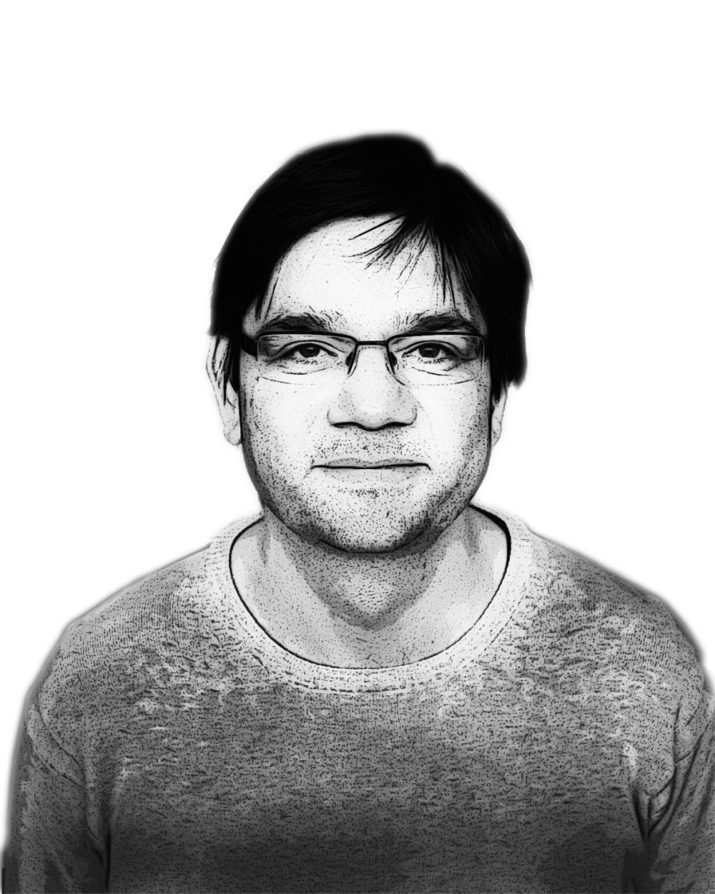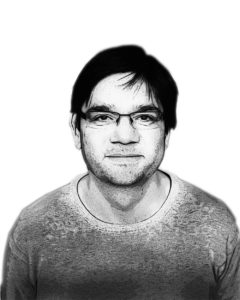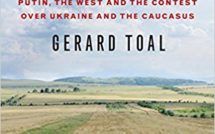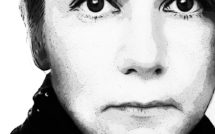

Translated from the Buglarian by Ekaterina Petrova.
This is part of our special feature on Contemporary Bulgarian Literature.
Zhoro “the Bird” was a Bulgarian immigrant in Melbourne. He was born in a village near the town of Plovdiv, where, going off in pursuit of his entire family’s happiness, he had left behind a wife and a daughter. His plan was to bring them over once he settled down. He’d originally come to Australia as a member of the national veterans’ volleyball team. My friend Bobby Kashchiev and I, on the other hand, had managed to get ourselves visas as founders of an elite windsurfing team. The Bird had never seen a volleyball in his life, just like Bobby and I had never touched a surfboard, but in the mid-1990s these kinds of white lies were the only way for a Bulgarian citizen to get a visa to a country like Australia.
Zhoro “the Bird” and I slept in adjoining beds. Father Alexander Popov had put us up in the events hall, owned by the Bulgarian church in the city. Actually, we didn’t sleep in the hall itself, but in its former projection booth: a not particularly spacious room with six beds and a slanted ceiling, against which the Bird’s mighty snores reverberated every night. His small and skinny body was capable of producing a sound of disproportionate enormity while he slept. Half-awake, I’d give him a kick and he’d stop, just long enough for me to doze off. The Bird couldn’t feel my kicks, since, before going to bed, he invariably got wasted on two liters of the cheapest synthetic white wine he could find.
“Kumonboyz!” he’d raise his glass and toast us during the day, using the only English phrase he’d learned during the two years he’d already spent in Melbourne.
While the Bird was boozing on wine, we absent-mindedly watched the Australian Open on TV. Even though it was almost 7 p.m., the temperature in Melbourne was 35°C. Combined with the humidity from the ocean, this made being outside so unbearable that we had no choice but to sit in the events hall and listen to the Bird’s slurred jabbering. The good thing was that he would go to bed soon, because he worked the night shift and had to get up at 3 in the morning.
“All my life, I’ve wondered why they call me Zhoro ‘the Bird.’ Now I know it was destiny—I was meant to get this job!”
The Bird had somehow managed to get set up with a job in a poultry processing plant. What he didn’t know was that his face looked exactly like a sparrow’s.
“It’s destiny, it’s what it is, boys . . . Kumonboyz!”
Pete Sampras hit a serve, which almost knocked Thomas Muster’s arm out. Impressed, Bobby and I exchanged glances. Zhoro “the Bird” would not stop:
“If only I could get my family over here with me, I wouldn’t need anything else. My wife’s decent, and my daughter’s golden. I just bought a pair of roller skates for her. They’ve got all their wheels in a line, not like the old ones from back in the day . . .”
The game ended and a cheese commercial came on. Overly cheery Australians waved yellowish cheese wheels around and sang about how nice it was to have a good family.
“My wife loves me so much! So much!” the Bird rambled on. “She writes me letters. She puts a letter in with every carton of Femina smokes she sends in the mail.”
Although he was working illegally, the Bird was making good money, since his job required hard physical labor and middle-of-the-night shifts. He sent everything he earned to his wife in Bulgaria, only keeping enough cash for a few liters of wine and the cheapest food possible. Back then, the Bulgarian Lev was so devalued that anyone who had access to foreign currency could live like a king. And that’s most probably what his wife was doing, while mailing him a carton of cigarettes every month, accompanied by notes of advice such as, “Don’t you go and spend money on nonsense.”
“Here, read this!”
The Bird shoved a letter into my hands and swelled with pride as I began to read it. A few seconds later his patience wore out.
“Read it out loud!”
“‘. . . so don’t stop working taking care of us like you do. Under no circunstance think about coming back here it is bad. Dont worry about us were geting by. I went to a sychic yesterday and she said a man will help you get us over there. His name starts with the letter O K L P V D U or R . . .’”
It was clear from the letter that the woman was uneducated and simple, though this wasn’t a bad thing in and of itself. The more unpleasant conclusion from her transparently manipulative words was that she had no intention of coming over to join her husband, nor did she want him to stop sending her money. After the Bird went to bed, Bobby and I briefly talked about this, but finally decided there was no point in getting involved, since we couldn’t save Zhoro from his wife or, for that matter, from himself.
The following day, the weather warmed up. From 35 to 40°C. The only place it was still possible to breathe was the enormous kitchen with the two dozen hot plates, which hadn’t been used in a long time. The Bird found me there. He strolled in with unusual lightness, almost like a dancer. He came up to me, a bizarre smile on his face, which I interpreted as, “You and I know something the others don’t.” I smiled back at him and after I turned down his invitation for a glass of warm white wine, he got straight to the point:
“Is your father really Konstantin Kotzev?”
I nodded.
“The actor, the one from the television?”
“Yes,” I confirmed.
“Thank God . . .” he said, then glanced around, as if expecting somebody to be eavesdropping on our conversation. He even lowered his voice. “I need a favor.”
I couldn’t imagine what he might possibly ask for. An autograph was out of the question since my father was 15,000 kilometers away from the kitchen in which we stood.
“Sure, tell me . . .”
“So. You know I want to get my family over here? My wife and my daughter. The priest says I can’t because my visa’s expired. But your father . . .”
He let the final sentence hang in the air without a clear ending, thinking his request must be obvious. He tilted his head to one side like a pigeon wondering if it would get tossed a crumb, and gave me a bribing smile.
“What about my father?” I still wasn’t catching on.
“Your father’s famous. He can make a phone call and arrange for them to get permission to come over.”
“Ha-ha,” I laughed at his joke.
A second later, his confused expression made me realize he wasn’t trying to make me laugh—after all, we were talking about the possibility of his getting reunited with those dearest to his heart.
“But he can’t do anything . . .” I hesitantly began to explain. “He has no way of . . .”
The Bird immediately took my hesitation for an unwillingness to help.
“Come on, of course he can, everybody knows him!”
“Hold on. Everybody knows him in Bulgaria, but we’re in Australia. Nobody knows him . . .”
“That’s not true. I used to watch him on TV all the time when I was young. I still remember all his lines from that movie by heart, the one about the central heating. Everybody knows him.”
I felt completely helpless. Various justifications floated around in my head: “Would I be sleeping in the bed next to yours, listening to your snoring every night, if my father could impress anyone in Australia with a single phone call? Just because you’ve seen Heating Season, doesn’t mean everyone else on the planet has seen it too. Australians don’t even know where Bulgaria is, and you expect them to know about a communist-era comedy about the problems of a Sofia tenement building with no central heating . . .” But none of these arguments came out of my mouth, since I knew they’d be construed as a bunch of elaborate, bogus excuses. The kitchen got totally stuffy. The Bird was looking at me with an expression from which all the former friendliness was gone.
“There’s no way for me to help you, I’m sorry,” I finally said. “Nobody here’s heard of my father.”
“Don’t lie to me, I found out he’s your father from the old priest.”
“Look, Zhoro . . .”
I couldn’t say anything more without feeling like an even bigger idiot than him.
“Okay. I can see you don’t want to help.”
I kept quiet.
“Just say it: ‘I don’t want to help you, I don’t want to bother my father with this kind of stuff!’”
He almost shouted the last few words, but got frightened by his own voice—he hadn’t expected to display such audacity in front of the only person who could help him. The hope of reuniting with his family, which until just moments ago had filled him and allowed him to move around with the confidence and serenity of a dirigible, had now left him. The sorrow made his face look like a raisin. He shot me another few glances with his dark little eyes, as if to make sure it really was possible that life had brought him in contact with such a heartless person.
To him, I seemed like the spoiled, evil child of an influential and haughty father, who sat by his omnipotent telephone, somewhere over on the other side of the world, and refused to help.
“Kumonboyz. . .” the Bird mumbled to himself and left the kitchen.
Sunday was the day that the old immigrants—those who’d lived in Melbourne for years—went to church. After the service, some of them hung back in the events hall, to chat with the potential new immigrants like us and inquire about the situation in Bulgaria, only to confirm their conviction that they’d made the right choice in leaving the country. As Sunday’s timelessness stretched on, the lonely ones among them stayed on to have some beer or play a game of cards in the company of fellow Bulgarians. The Bird joined a foursome for a game of belote, his face brimming with happiness, because he was feeling accepted by the local authority figures. He saw the game of cards as another step in the direction of his naturalization.
Two weeks had passed since our encounter in the kitchen. The Bird hadn’t shown any aggression or hostility toward me after I rejected his plea for help. He’d only stopped addressing me with “Kumonboyz.” He still said it to Bobby, but not to me. I felt sorry for him, but also completely helpless. It was the first time in my life that I couldn’t prove I wasn’t a bad person.
I’d taken a seat near the card players’ table. I didn’t usually enjoy loitering, but now found their uneven chatter pleasant. With each card, snippets of conversation flew over the table, which made the hall feel weirdly cozy. I was rereading the first letter from my father that had managed to reach me. I’d initially devoured it in private as soon as I received it, and now relished mulling over it again, finding nuances in his words and trying to picture him writing it, where he was sitting, and what he was wearing.
Suddenly I sensed that something around me had changed. The card players had fallen silent. I lifted my eyes from the letter and saw two men and a woman standing by the table, dressed in identical black suits and white shirts. All three of them had holsters with black guns in them, and stood in a way that ensured their weapons were visible. Through the hall’s open front door, I could see the vehicles they’d come in—two anonymous white cars, which were impressively parked at such an angle that they blocked the walking path.
The three Australian government employees must’ve surely seen Men in Black, because they acted like men in black and thought of themselves as men in black. Even the woman did. One of them took out a piece of paper and read something from it. I didn’t hear exactly what he said, but I could see the paper had an enormous picture of the Bird pasted in the middle of it. The Bird himself was smiling tentatively, his eyes darting back and forth between the man and the other card players, since he couldn’t understand a single word. One of the card players told him:
“They’re looking for you because you have no papers.”
The Bird smiled widely and started examining his hand, as if trying to decide which card to open the game with. The leader of the visitors in suits gave a theatrical sigh. He then spread his legs further, as to make his stance more stable and make himself appear more imposing. He read out the name underneath the photograph with ceremonial seriousness and gave the Bird a piercing look. Still smiling, Zhoro stirred in his chair, then turned to the man next to him and whispered:
“Tell him that’s not me.”
The three Immigration Department employees surrounded him and, without saying a word, lifted him out of his chair. One minute later, there was no trace of the Bird, the cars, or the men in black. One of the four chairs around the table stood empty.
“Come and take Zhoro’s place,” somebody suggested.
I refused.
A few days later, Father Popov asked us to pack the Bird’s belongings, because he was getting deported. Awaiting him were twenty-two hours in the air and three layovers between flights before getting to Sofia, from where he would take the bus to Plovdiv, then a shuttle to his village, only to find that his wife had used his earnings to build a big house with unfinished walls, where she now lived with the local policeman.
We gathered all the Bird’s clothes in a bag. The last thing we put in was a pair of roller skates, the kind that have all their wheels in a line, not like the old ones from back in the day.
Dimitar “Shosho” Kotzev is a Bulgarian film and television director, scriptwriter, novelist, nonfiction author, and translator. He holds degrees in English from Sofia University and in Cinema Directing from the National Film and Theater Academy. His first feature film, Lora from Morning Till Evening, based on his novel of the same name, came out in 2011. His recently released feature film Monkey (2016) was also based on his screenplay. His second novel, Skarida (Shrimp), was published in 2015.
Ekaterina Petrova is a literary translator, journalist, and interpreter. After receiving a BA in International Studies and German Studies from Macalester College and an MSc in European Politics from the London School of Economics, she is currently pursuing an MFA in Literary Translation from the University of Iowa, where she was awarded the Iowa Arts Fellowship. Her literary translations and her own nonfiction writing have appeared in a variety of Bulgarian and English-language publications.
“Roller Skates” was published in the Bulgarian-language anthology Bashtite ne si otivat (Our Fathers Are Never Really Gone) [Sofia: ICU Press, 2017], which includes a selection of 24 nonfiction/autobiographical essays by Bulgarian writers, poets, translators, film and theater directors, journalists, artists, etc. about their late fathers.
Published on December 6, 2017.




